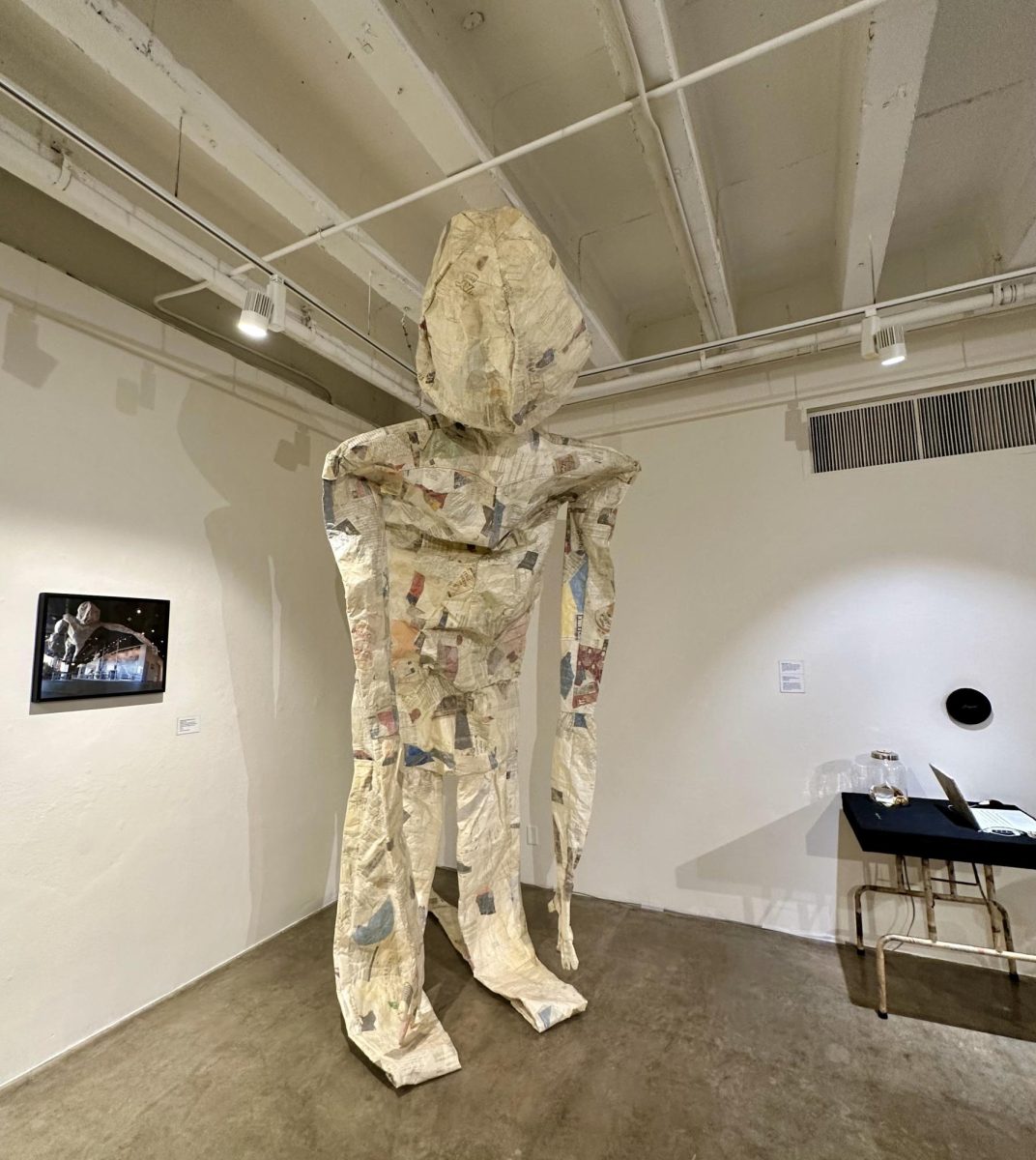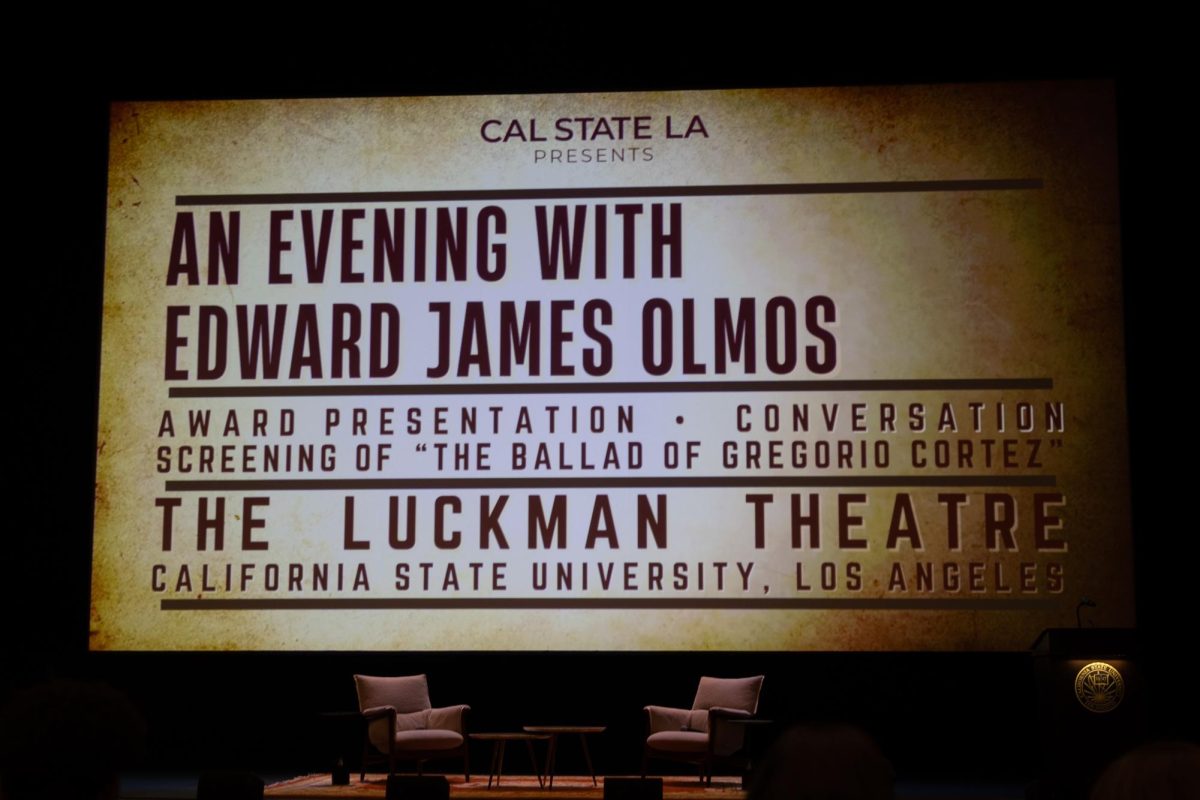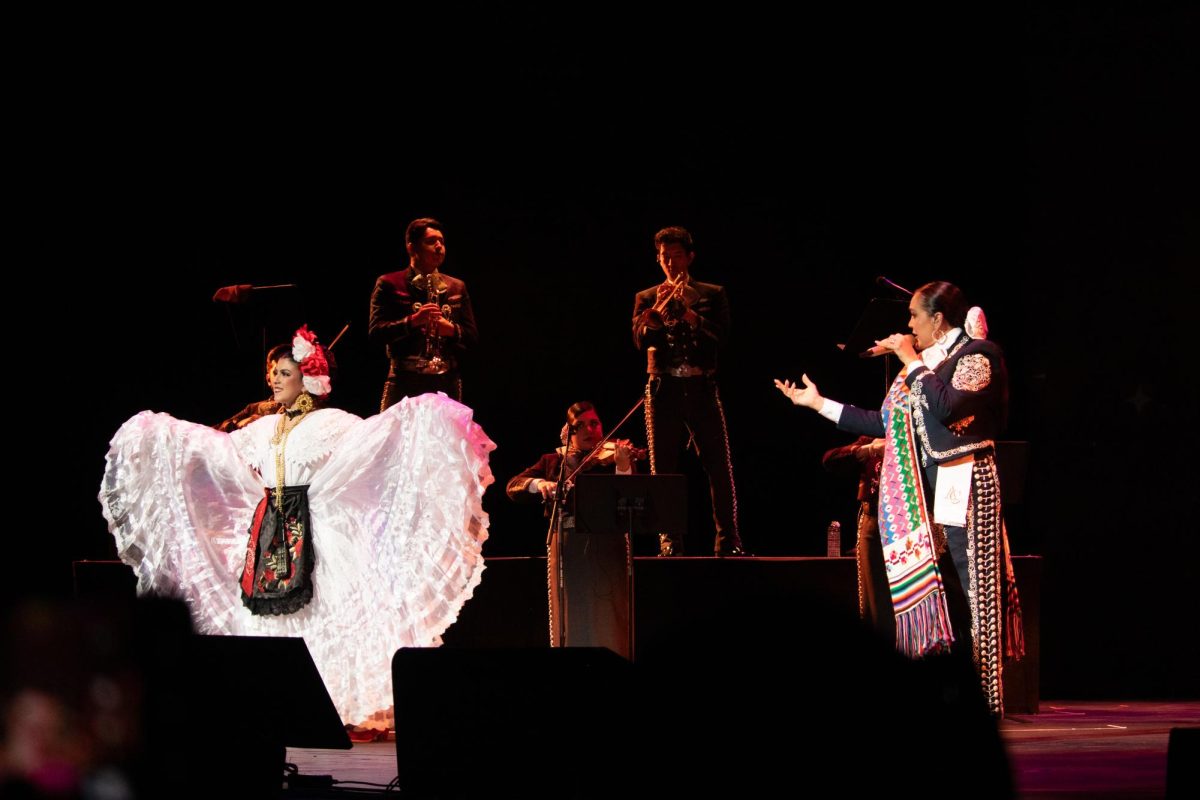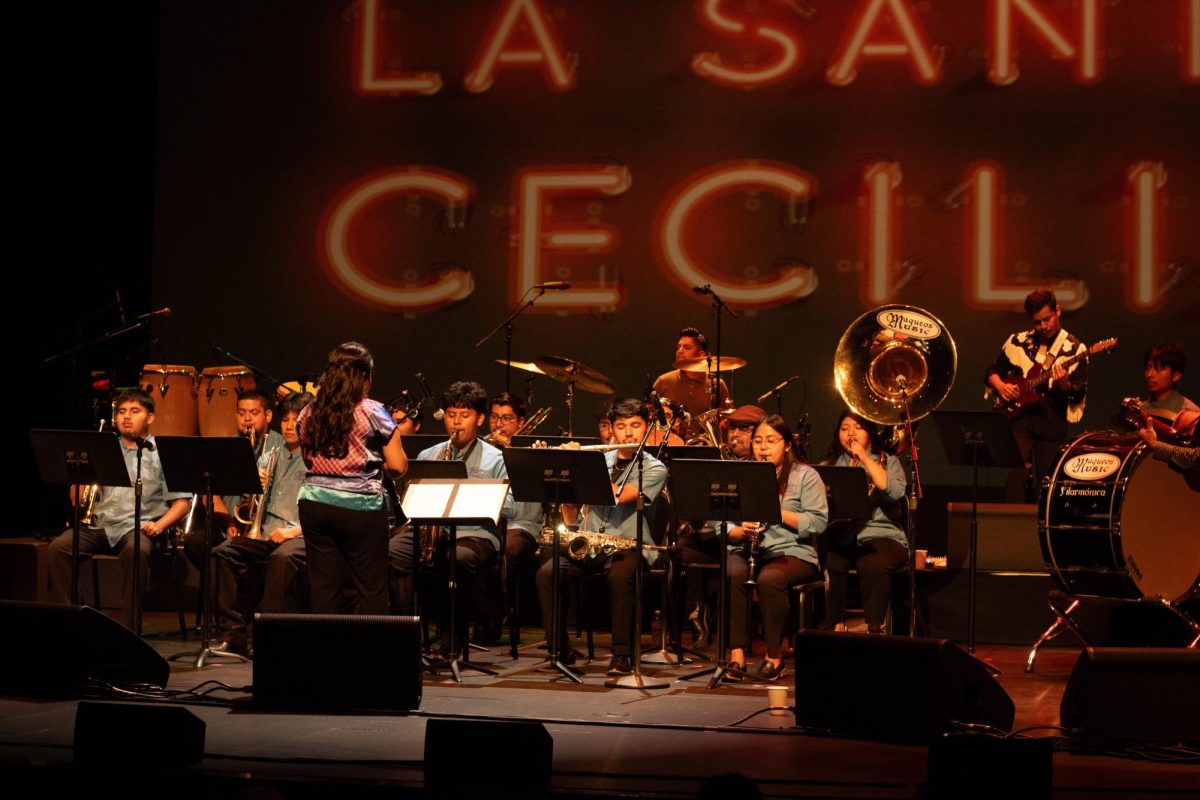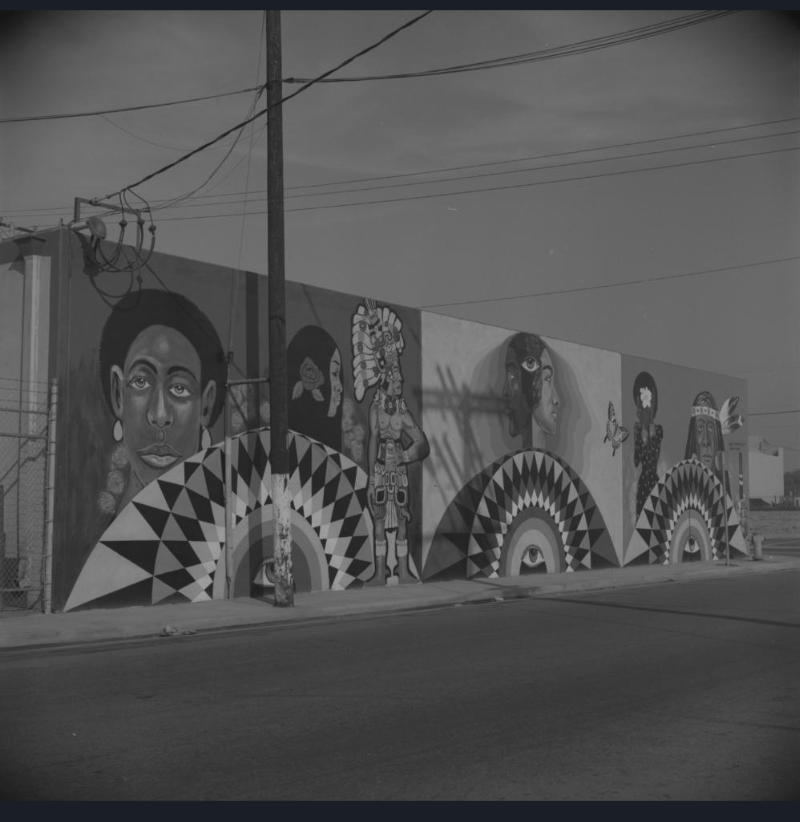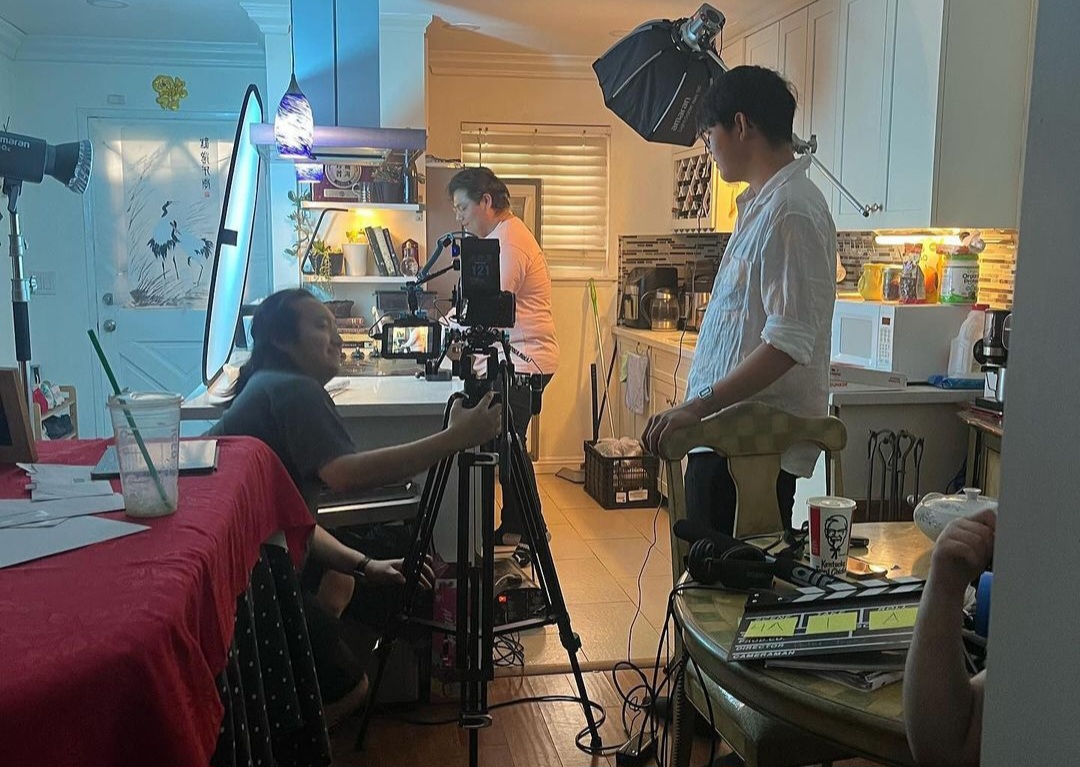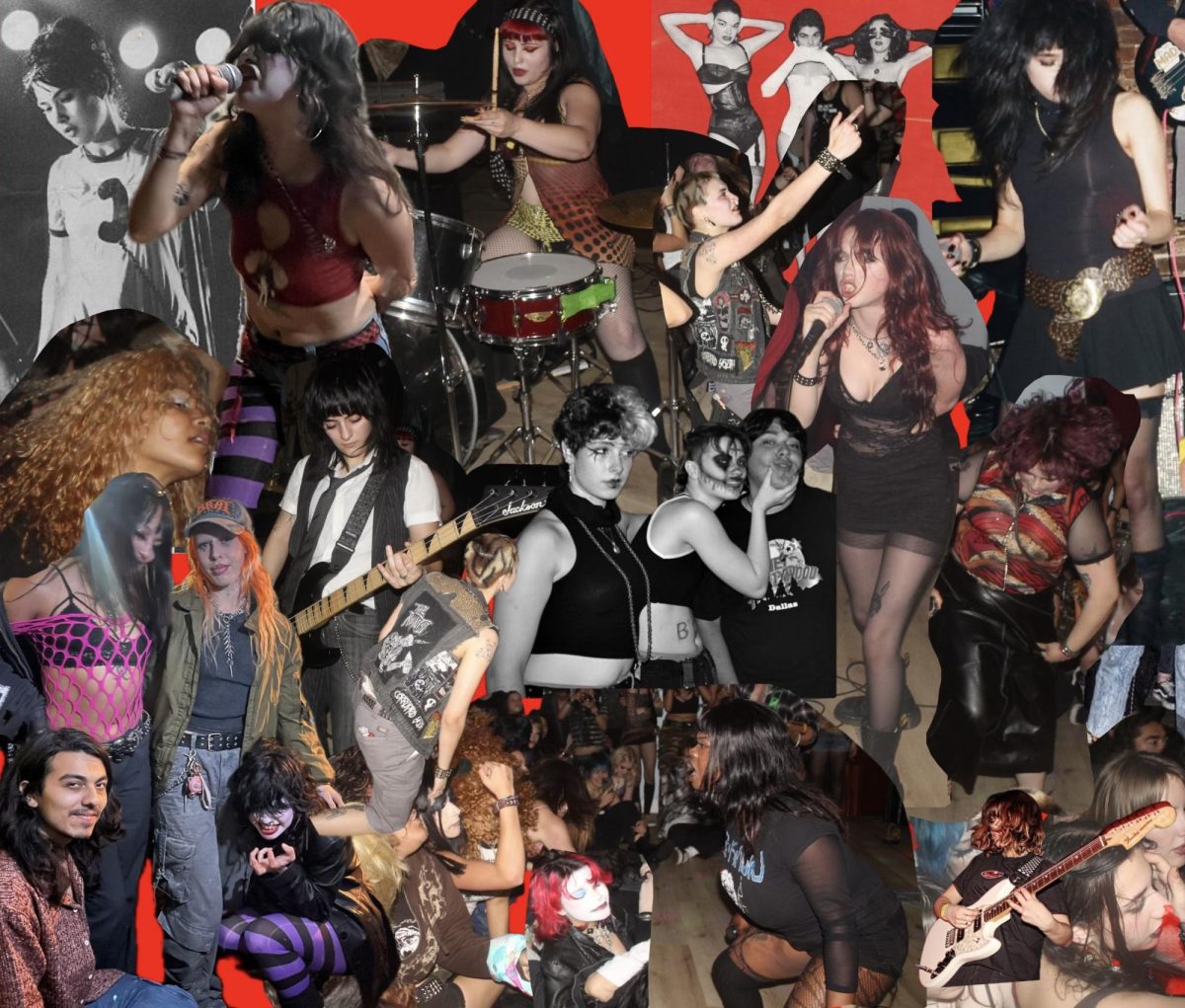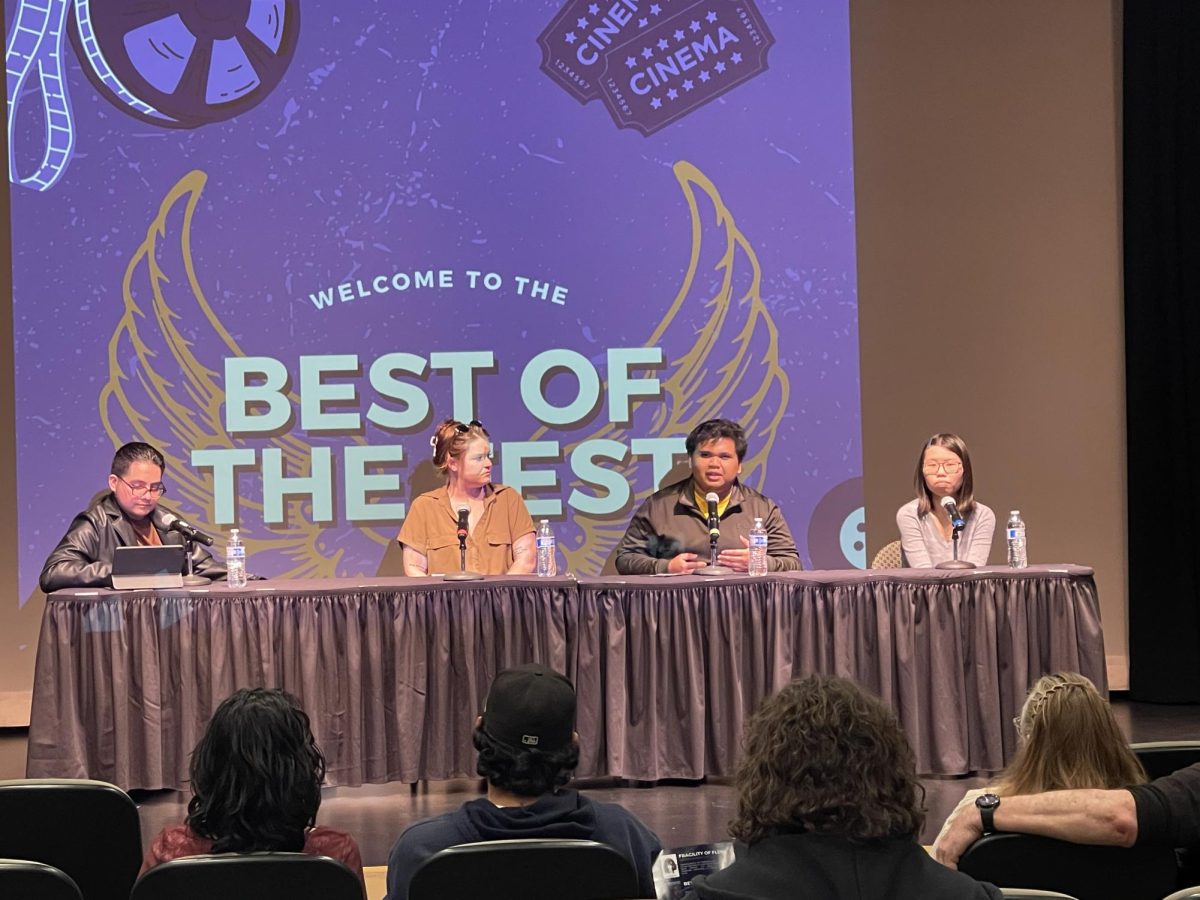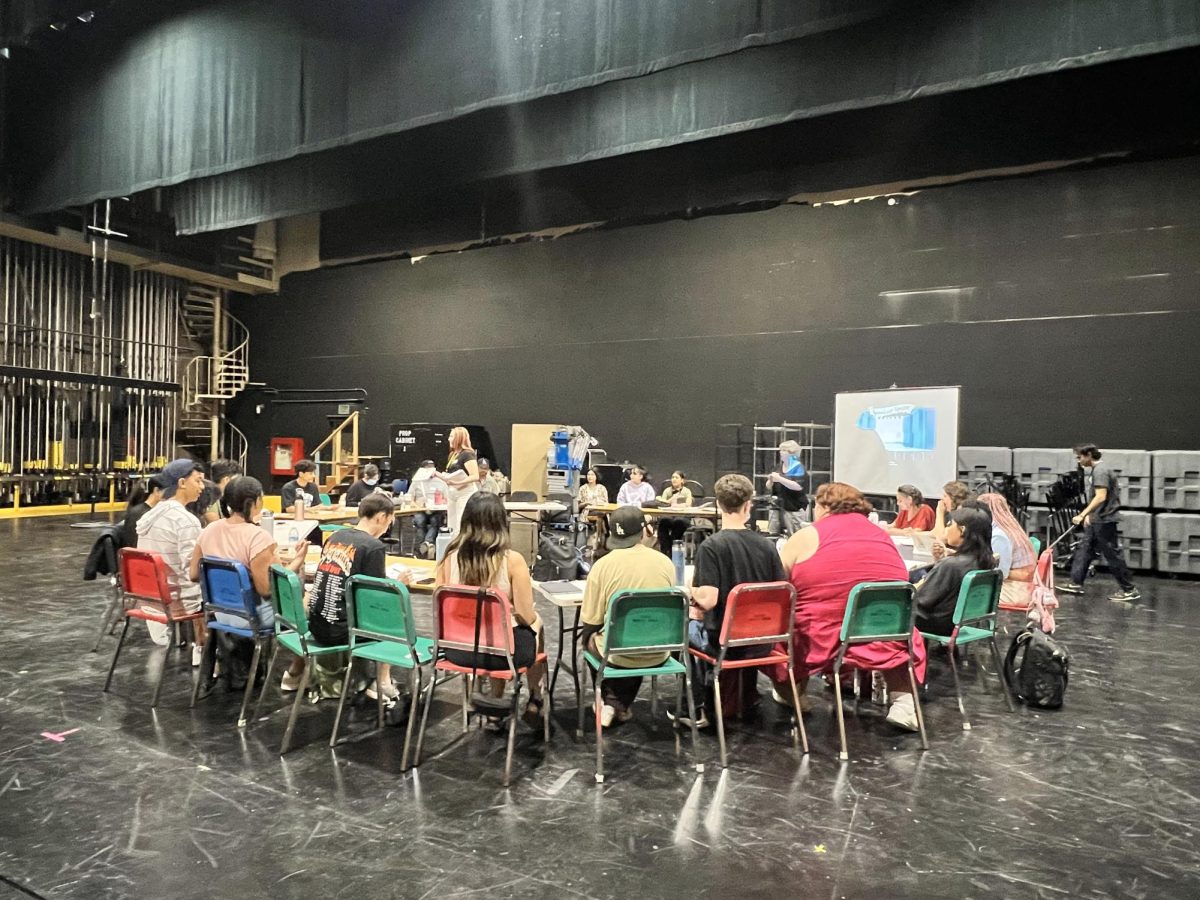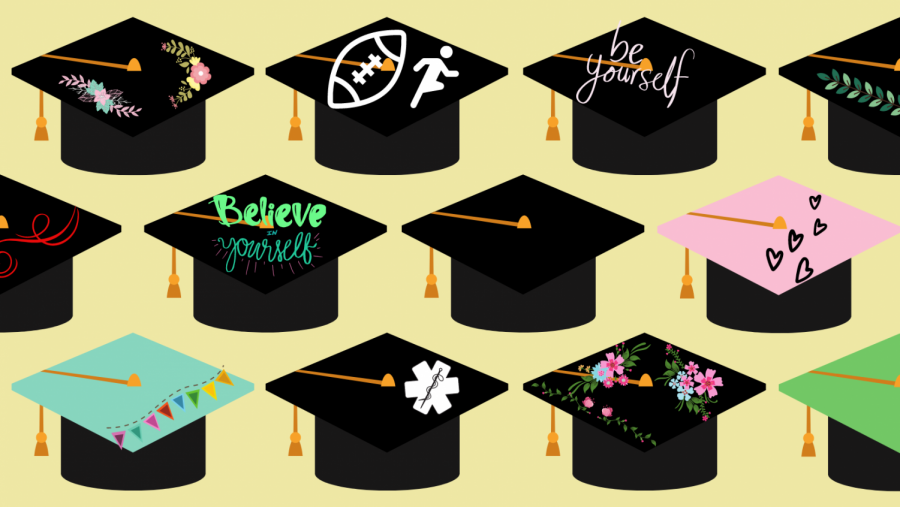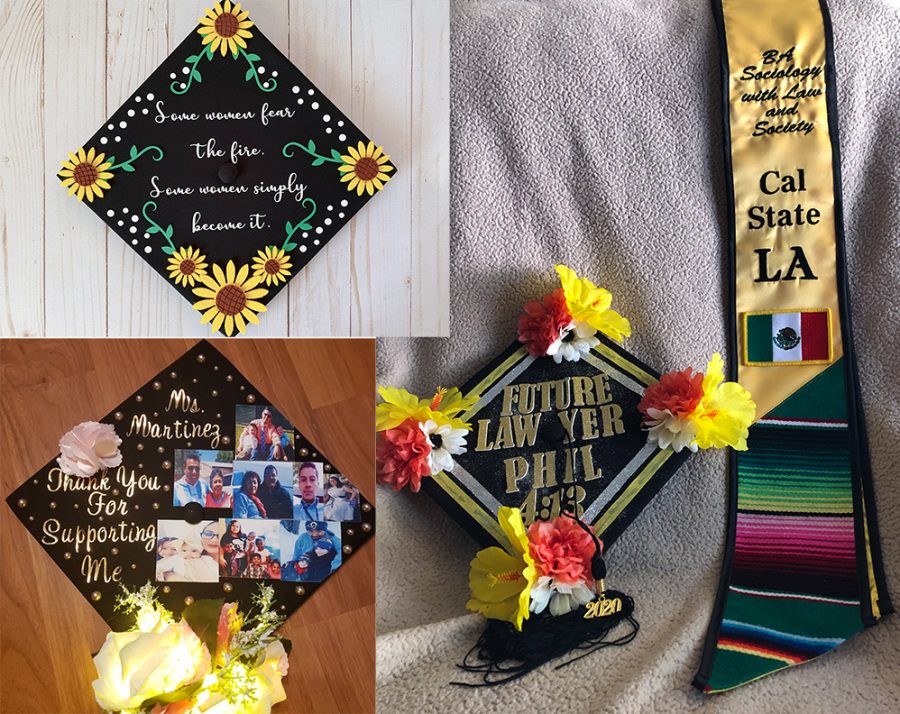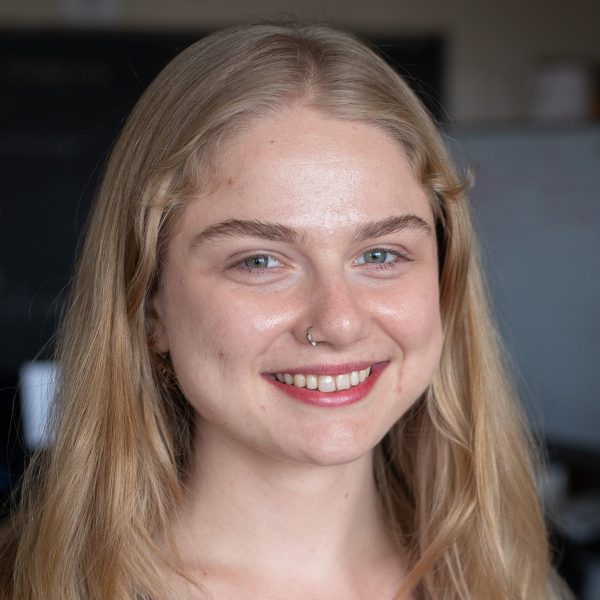When you walk into the exhibit, one of the first works of art you are greeted with upon entry is a horseshoe shaped table containing a urine sample from when artist Kim Abeles was pregnant with her daughter, photographs, watches, her uncle’s purple heart medal, eyeglasses from different family members and a piece of her mom’s wedding veil.
These are the personal items contained inside of Abeles‘ piece, Personal Effects (1993).
On the outside of the table, there are paintings of “legal correspondence” that represent the police and prison problems that her family experienced.
“They are this cushion around that horseshoe,” Abeles said.
Abeles uses her works to address issues such as social justice, feminism, the environment and education. Her exhibition, Social Furniture, is currently on display at the Ronald H. Silverman Fines Arts Gallery on Cal State LA’s campus.
This exhibition features Abeles’ mixed-media artworks, large-scale installations and sculptures crafted since 1976.Her work represents environmental issues, human rights, historical narratives, feminism, geography and social sciences.
Mika Cho, the curator and art director of the gallery, said she has been following Abeles’ work for the last three decades and admires her. Cho decided to feature Abeles’ artwork as a part of her three-part-series of shows focusing on the human condition.
“It kind of…justifies human life and how we collectively together make the world a better place,” she said.
Cho said that every semester she sends out about 4,000 emails in an attempt to source new student staff for the gallery because they do not have a professional staff. She hires “random students” to assemble and install the exhibits she curates.
For this show, six students were responsible for the installation of the exhibit.
On display are over 60 works of art, broken down into six sections, titled: Human Nature, Documents, Body of Voices, Atmosphere, frugalworld and Space + Time. These works reflect the human experiences throughout the 20th and 21st centuries, with a focus on nature and society.
Abeles said she was always aware that the art industry was male-dominated, especially while in college. She said that it was rare to come across female artists in college classes during the early 70s, which is “mystifying” today.
She recalled that her janson’s art history (focusing on western art) class in college did not focus on any females, except as the nudes in the paintings she studied.
“As an individual artist, I felt like I was just going to try to stay true to the work I made and that I was focused on,” Abeles said. “I believed that if I was putting forth my strongest effort in terms of what labor and work means, and really honoring the kind of ideas that came from my heart, then people would accept, appreciate and be moved by it.”
During her gallery’s debut, Abeles’ fingers were still sore from “diligently” adding some final touches to various pieces for the exhibit, ranging from her Venn-diagram shaped table titled frugalworld (2010) (containing a collection of objects made by inmates in solitary confinement) and fixing the legs on Personal Effects. She said she had been working day and night for the past six months.
“All I have as a person is the loyalty to the ideas that come through me and if there is one thing I don’t want anybody to take away from me it’s that,” Abeles said. “It’s really amazing how much pressure there is on artists to stifle themselves or to censor themselves, whether it’s because of their political ideas or their backgrounds or because of sales, collectors, museum collections and gallery expectations.”
Abeles is fascinated by how society documents and assesses our existence, which are recurring themes throughout her work.
“We fill up our blank slate and we can understand it by opening up our wallet and seeing what we carry around with us all the time,” Abeles said.
Her piece titled; Self-Portrait (Pope Joan) is a modified chair that contains all of her identification cards from the day she was born in 1952 up to 2015.
Some featured items include Abeles’ personal documentation like expired drivers’ licenses, social security card, birth certificate and Intrauterine Contraceptive Device (IUD) I.D. card for her Copper 7 IUD.
The chair documents all of the best, saddest and worst experiences she has gone through in her life, according to Abeles.
Also featured in the exhibit, is her large-scale installation, the Paper Person which she created using one day’s worth of trash collected Jan. 5. 2009 from the private school Harvard Westlake located in Studio City.
“The most beautiful thing that you can do is to get an idea and you’re a little bit afraid of it and you go ahead and do it anyway,” Abeles said.

